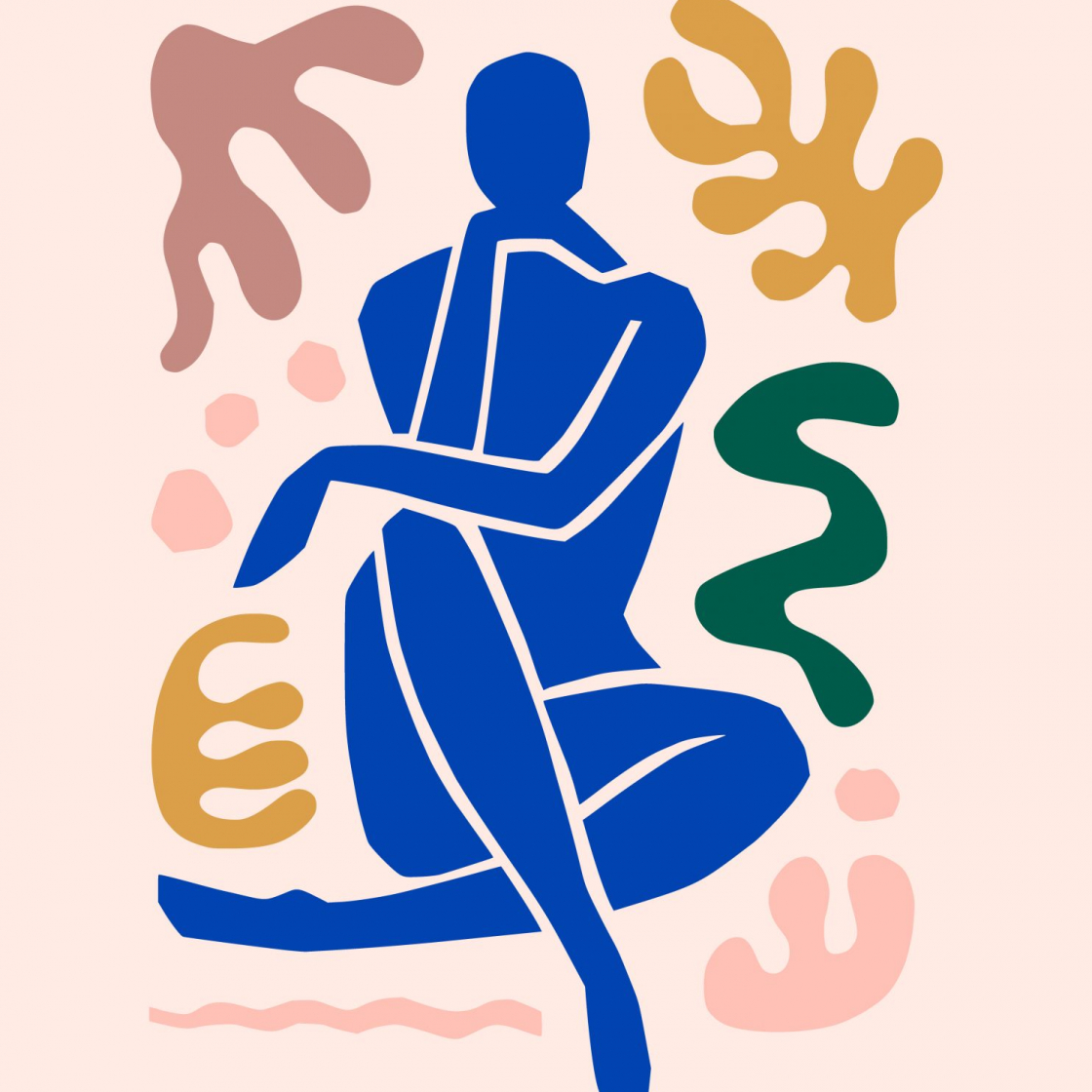Written by Lauren Geall
As Stylist’s digital writer, Lauren Geall writes on topics including mental health, wellbeing and women’s issues. She’s also a big fan of houseplants and likes to dabble in film and TV from time-to-time. You can find her on Twitter at @laurenjanegeall.
Despite how big an impact our emotions can have on our mental health, many of us subconsciously avoid our feelings – here’s how to overwrite this impulse.
Knowing how to manage your emotions can make a big difference to your mental health. While no one can control how they feel, understanding your emotions – and having a toolkit of healthy coping mechanisms to turn to where necessary – can help you feel more stable.
But despite all this, many of us continue to push aside, ignore or distract ourselves from emotions that make us feel low or uncomfortable.
In some circumstances, this is a conscious behaviour –because we’re rarely taught how to regulate our emotions as kids, we might (wrongly) believe that putting on a brave face is the easiest way to deal with feelings such as sadness or anger. But in other cases, ignoring your emotions can actually become a subconscious coping mechanism known as an ‘emotional blindspot’.
How these emotional blind spots materialise – and the emotions they protect us from – will of course differ from person to person, but they might include throwing yourself into work to avoid feeling insecure about a big project you’ve got coming up or avoiding talking to your friends or family when you’re feeling sad or unsure about a choice you’ve made.
In short, they are behaviours, habits and ways of thinking we use to stop ourselves from entering an unwanted emotional state. In fact, in some cases, our emotional blind spots may become so developed that we don’t even realise we’re feeling the emotion they’re designed to protect us from in the first place.
However, while avoiding a feeling every once in a while is no big deal (in fact, sometimes distraction is helpful), our emotional blind spots can lead to problems in the long run.

“The ‘cost’ of all this brushing under the carpet and distraction can be huge, as unexpressed feelings of sadness, rejection, shame, fear, rage or disappointment impact us physically and mentally,” explains Heidi Hauer, a life and leadership coach and author of The Queendom Within – Rewrite Your Fairytale.
“Over time, the drip-feed of squashed-down emotion leads to disconnection – we feel out of touch with ourselves. We may also experience anxiety, depression or physical problems such as chronic headaches and fatigue.”
While emotional blind spots often function on a subconscious level, there are some simple ways to work out whether or not you possess one or more of your own.
“Feeling unsure of what your emotional experience is, moment to moment, can be a sign that blind spots have a powerful hold over you,” Hauer suggests.
“Similarly, feeling compelled to engage in a behaviour, particularly one that may have negative consequences, whenever you experience a painful emotion is concerning. Such behaviours come in an endless variety of forms. Yours might be frantically planning social engagements, splurging on clothes online or compulsive cleaning.
“Our blind spots are made up of the emotions we can’t sit with. This makes them tricky to identify: in order to clock what we’re distracting ourselves from, we need to catch ourselves at it!”
Of course, identifying and unpicking your emotional blind spots isn’t going to be an enjoyable process – most of the time the emotions you’re subconsciously trying to avoid are going to be negative.
But taking the time to find out what’s going on in your brain can make a big difference to your overall wellbeing – and help you to become more emotionally resilient in the long run, too.
Keep reading to check out Hauer’s seven top tips for confronting your emotional blind spots.
1. Practise mindfulness
“Try doing this for anywhere between one to five minutes a day. As you breathe, check in with yourself and try to identify what you’re feeling and label it. If you find your mind buzzes off with plans or worries, bring it back to the breath and the feeling in the pit of your belly or your chest. Try to allow whatever it is you’re feeling.
“There are five core emotions: happiness, fear, sadness, disgust and anger. Of course, there are countless others once you become attuned to them, but the basic five are a good place to start. Try to identify which is closest to your own feeling and just label it.”
2. Keep a blind spot journal
“Every day, spend five minutes jotting down a record of whatever felt like the most difficult or painful emotional experience of the day. Ask yourself questions like: ‘Did I do something to distract from this feeling?’ and ‘What was the feeling and what did I do?’”

3. Ask yourself what the unspoken rules in your family were when you were growing up
“Most families have these, whether it’s ‘Dad knows best,’ or ‘Don’t make a fuss.’ How might your response to such unspoken rules have made you want to deny feeling a particular feeling?”
4. Ask for 360 feedback
“Choose a handful of people you trust, who know you in different ways. Pick only people who have known you for some time. Ask them for their honest opinion on the emotions you display most and on your personality traits. See if they also have a view on the emotions you seem to avoid.
“Sometimes, the emotional self that others see gives us a clue as to the “shadow” side that characterises our blind spots, so those who outwardly appear, for example, extremely organised may feel terrified of feeling out of control.”
5. Experiment with atypical responses
“Emotional maturity is characterised by a feeling that we have a choice about how to respond. Whereas when we are ruled by a blind spot, we feel compelled to respond in a familiar way.The next time a difficult feeling comes up and you are tempted to do what you always do in response, try to do the opposite.”
6. Try speaking up
“Test out how it feels to speak up about feelings you would normally ignore or brush off. Start with a safe space first, with a friend you trust, and go from there. You don’t need to go into detail, but saying ‘I’m good thanks,’ to a friend when you have had a really hard week is doing yourself and them a disservice.”
7. Study others
“Seek out a role model who seems to cope well with the emotions you fear most and want to avoid. Study them and try to see what you might learn from their way of managing difficult emotions.”
Images: Getty
Source: Read Full Article
